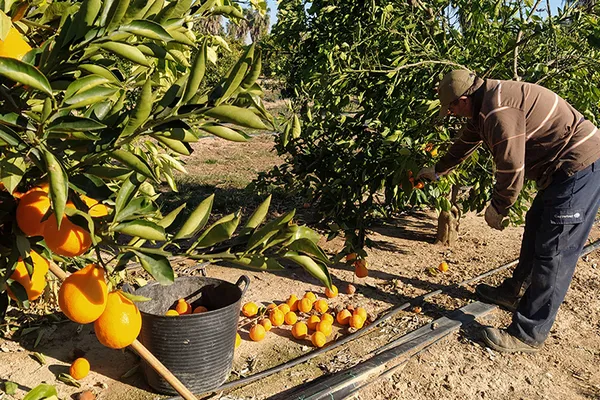The Valencian Agricultural Producers Association (AVA-ASAJA) is calling on regional and national authorities to investigate the causes behind the sharp drop in citrus prices at origin. According to the Lonja de Cítricos de Valencia, orange prices have plummeted by up to 30% in the last month, with the Navel Lane Late variety dropping from 0.36 to 0.25 €/kg. In later varieties, the Valencia Late has started at 0.21 €/kg, which falls below the production costs. As for mandarins, the varieties that have suffered the most significant drops in their prices at origin have been the Orri (-22%) and Ortanique (-17%).

The agricultural organization is asking for the main commercial operators and retail chains to undergo thorough inspections "to rule out anti-competitive practices, and perhaps even collusion, as based on official data from the European Commission, no technical factor alone can decisively explain this sharp drop in the prices paid to producers." It is also urging the AICA to investigate, and if applicable, sanction any citrus purchase-sale contract with prices set below the average production costs.
The first signs of this citrus crisis were observed in January, when some mandarin varieties, such as the Clemenvilla or Hernandina, were affected by severe marketing problems, and, indeed, many fields were left unharvested due to a lack of demand.
Many oranges, which had been selling for reasonable prices, have been unprofitable since February. Voices within the sector, particularly from private traders and cooperatives, are blaming it on an external factor, namely imports. According to data from the EC provided by Ailimpo, orange imports into the EU from third countries from October to February amounted to 263,437 tons, which is 5% less than in the same period of the previous year. Spain's orange exports to the EU amounted to 580,337 tons, and their market share stood at around 70% in a campaign affected by a reduction of the harvest due to weather adversities.
All in all, AVA-ASAJA has reiterated its "outrage at the EU's commercial strategy, which promotes unfair competition from third countries at the expense of damaging its producers, and highlighted Egypt's huge growth potential." In fact, Egypt's orange shipments have already surpassed South Africa's for the first time this season, with 115,022 tons; a 56% increase compared to the previous year. Thus, Brussels is being called on to review the trade agreement that the EU has with Egypt and other countries such as South Africa, Turkey and Morocco.
 For more information:
For more information:
Valencian Farmers Association (AVA-ASAJA)
T: +96 380 46 06
[email protected]
